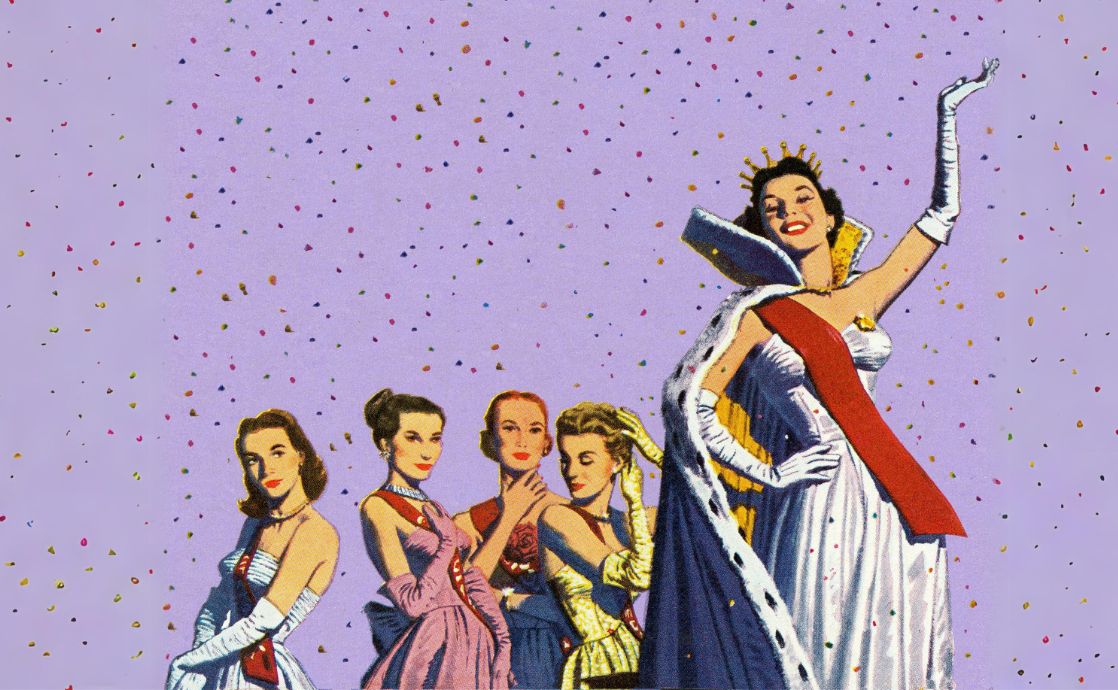The views expressed in our content reflect individual perspectives and do not represent the authoritative views of the Baha'i Faith.
“Comparison is the thief of joy,” Teddy Rosevelt once said. Mark Twain stepped it up a notch when he declared, “Comparison is the death of joy.”
The same general phrase has been penned or spoken by many others since then, but the general idea remains the same. When we compare ourselves to others, we do everyone a disservice.
Now, we all know that comparison can sometimes have positive aspects. What about comparison as a healthy part of competition? In an impersonal sense, when we assess our strengths and weaknesses by observing what is possible, we can discover ways to better ourselves. One athlete might observe the successful record of another to realize what is possible and to spur them on to victory. Comparisons in society have to be observed, otherwise, how could we recognize and work to correct the extremes of wealth and poverty or the injustices perpetrated upon minorities and women?
RELATED: Overcoming 4 Psychological Barriers to Happiness
But that’s not what I’m referring to here — I’m talking about sizing ourselves up or down in comparison to other individuals in our lives.
When we do this, we tend to feel either less than or better than whoever we’re observing. When we make comparisons like this, we fail to take into account the inherent nobility and worth of each individual — which is never subject to comparison, as the Baha’i teachings point out:
O Son of Spirit! I created thee rich, why dost thou bring thyself down to poverty? Noble I made thee, wherewith dost thou abase thyself? Out of the essence of knowledge I gave thee being, why seekest thou enlightenment from anyone beside Me? Out of the clay of love I molded thee, how dost thou busy thyself with another? Turn thy sight unto thyself, that thou mayest find Me standing within thee, mighty, powerful and self-subsisting.
My daughter came into my bedroom the other day. As she slapped a stack of magazines down on my dresser, she said: “Please donate these, Mom. I just realized that each time after skimming through them, I don’t feel as good about myself.”
This is a pretty typical reaction for most young women, although they may not consciously realize it. For the most part, the media, including mass media and social media, focuses on impossible standards of beauty, wealth, and fame. Who wouldn’t feel bad? If advertisers make us feel bad enough about ourselves, then we might be more inclined to buy their products — hoping they will make us more beautiful and desirable. Who doesn’t want that? The problem is that as beautiful, wealthy, and famous as we may be, that’s not what speaks to our souls, gives us joy, and constitutes true soul relationships.
So instead of comparing ourselves to others, we would make ourselves healthier and happier by focusing on what God thinks. Our Creator is our true friend, as Baha’u’llah wrote in The Hidden Words:
Worldly friends, seeking their own good, appear to love one the other, whereas the true Friend hath loved and doth love you for your own sakes; indeed He hath suffered for your guidance countless afflictions. Be not disloyal to such a Friend, nay rather hasten unto Him.
Forgoing comparisons and accepting who we are also allows for the appreciation of all humanity. After all, would we say one flower is better than another? Each has qualities to admire and enjoy. In his book, “Zen Shin Talks,” the Japanese Buddhist monk Ogui said, “A flower does not think of competing to the flower next to it. It just blooms.”
When we compare ourselves to others, we tend to either devalue or overestimate ourselves. In either case, comparisons can cause a false sense of pride, or a rejection of our own worth. We’re better off staying in our own lane and focusing on becoming the best possible version of our noblest inner self. Baha’u’llah wrote:
Know ye not why We created you all from the same dust? That no one should exalt himself over the other. Ponder at all times in your hearts how ye were created. Since We have created you all from one same substance it is incumbent on you to be even as one soul, to walk with the same feet, eat with the same mouth and dwell in the same land, that from your inmost being, by your deeds and actions, the signs of oneness and the essence of detachment may be made manifest. Such is My counsel to you, O concourse of light! Heed ye this counsel that ye may obtain the fruit of holiness from the tree of wondrous glory.
I wish I had heeded that wise counsel more often. Years ago I attended an event on racism. I had met the speaker, a well-known author and public orator, many years before when we were both part of a Baha’i youth group that included all my closest friends. Now, seeing her and being a bit in awe of her well-deserved success, I mentioned to my friend: “Wow, I remember her from when we were just teenagers. We literally came from the same neighborhood and time. Look at all she has accomplished since then!”
All my friend did was agree, so my mind quickly calculated the disparity: she was changing the world with her talents and notoriety, while I struggled some days to handle the most mundane aspects of life. I began to feel very small and unworthy.
RELATED: Responding to Stress with Spirituality
Looking back, had I been a real friend to myself, I would have stopped and questioned my devaluating narrative; recognized that I was making the mistake of comparison; been kinder to myself; and realized that even though I never became a famous activist or author, I still had unique gifts to offer the world and ways that I could serve. Then I remembered Abdu’l-Baha’s admonition from his book The Secret of Divine Civilization: “… the honour and distinction of the individual consist in this, that he among all the world’s multitudes should become a source of social good.”
That wasn’t the first and I’m sure it won’t be the last time I fall into the comparison trap, and yes, it always steals my joy — but I’ve started to catch myself earlier each time. When I remember that all of us have distinctive gifts, like Abdu’l-Baha’s beautiful description of different flowers in a garden, I can concentrate on making myself the very best version of myself possible:
Consider the flowers of a garden. Though differing in kind, color, form and shape, yet, inasmuch as they are refreshed by the waters of one spring, revived by the breath of one wind, invigorated by the rays of one sun, this diversity increaseth their charm and addeth unto their beauty. How unpleasing to the eye if all the flowers and plants, the leaves and blossoms, the fruit, the branches and the trees of that garden were all of the same shape and color! Diversity of hues, form and shape enricheth and adorneth the garden, and heighteneth the effect thereof. In like manner, when divers shades of thought, temperament and character, are brought together under the power and influence of one central agency, the beauty and glory of human perfection will be revealed and made manifest.
















Comments
Sign in or create an account
Continue with Googleor